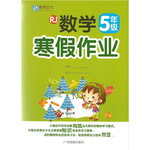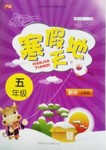题目内容
听力测试(共20小题;每小题1分,满分20分)
第一节(共5小题;每小题1分,满分5分)
听下面5段对话。每段对话仅读一遍。
1.Why does the woman want to try on another hat?
A.She doesn’t like the style.
B.She wants one of the right size.
C.She doesn’t like the colour.
2.How much is the red book?
A.$4.
B.$5.
C.$6.
3.Where are the speakers probably?
A.At a store.
B.At a zoo.
C.At a theater.
4.What probably caused the woman’s stomachache?
A.The seafood.
B.The medicine.
C.The cold.
5.What does the woman say about Susan?
A.She is a fast worker.
B.She has not finished her work.
C.She didn’t do the homework on her own.
第二节(共15小题;每小题1分,满分15分)
听下面5段对话或独白。每段对话或独白读两遍。
听第6段材料,回答第6-8题。
6.What are the speakers probably doing?
A.Watching a match on TV.
B.Listening to a programme on the radio.
C.Reading advertisements in the newspaper.
7.What kind of person does the company need?
A.A junior sales manager.
B.A general manager.
C.A secretary.
8.What will the man most probably do next?
A.Make an application for the job.
B.Go and look for another job.
C.Give the job a serious thought.
听第7段材料,回答第9-11题。
9.How often does the woman watch a football match?
A.Every day.
B.Once a week.
C.Once a month.
10.What is the man’s favorite sport?
A.Football.
B.Basketball.
C.Volleyball.
11.What do we know about the woman?
A.She does not play football.
B.She’s a good basketball player.
C.She used to watch football a lot.
听第8段材料,回答第12-14题。
12.What is the nationality of the Bronte sisters?
A.Irish.
B.English.
C.American.
13.Why are the Brontes’ novels popular around the world?
A.They are creative.
B.They are full of humor.
C.They are interesting.
14.What did the Brontes like to do when they were young?
A.Write poems.
B.Invent.
C.Read essays.
听第9段材料,回答第15-17题。
15.When did the woman start architecture studies?
A.Last week.
B.Last month.
C.Last year.
16.What can we learn from the conversation?
A.English is very useful in the woman’s job.
B.The woman will work in England after graduation.
C.The woman’s English is very good.
17.What has made the woman choose architecture as a career?
A.Her teacher’s suggestion.
B.Her parents’ expectation.
C.Her personal qualities.
听第10段材料,回答第18-20题。
18.What will the weather be like in Britain today?
A.Wet and windy.
B.Quite dry.
C.Sunny but cool.
19.Where will the weather be quite cold today?
A.Southern Europe.
B.Northwestern Europe.
C.Eastern Europe.
20.How will the weather be in the east of Europe tomorrow?
A.Windy.
B.Rainy.
C.Fine.

 黎明文化寒假作业系列答案
黎明文化寒假作业系列答案 寒假天地重庆出版社系列答案
寒假天地重庆出版社系列答案
